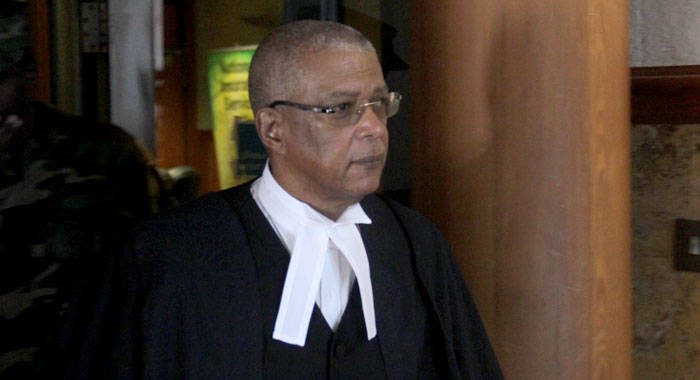Lawyers for opposition politician Benjamin “Ben” Exeter have elaborated 27 grounds appealing the decision of acting High Court judge, Justice Stanley John, to dismiss his petition challenging the Dec. 9, 2015 election of Sir Louis Straker as Member of Parliament for Central Leeward.
The lawyers say that a material irregularity occurred when the judge’s oral reasonsfor his decision contradicted his written ruling, “rendering his judgement unsound and unsafe in law”.
In dismissing the petition on March 21, Justice John said that except for bias on the part of the returning officer, Winston Gaymes, he had found no evidence to support Exeter’s challenge of the election outcome.
However, last Tuesday, April 30, Exeter’s lawyers filed an appeal of Justice John’s decision, saying that the judge was “plainly wrong in his oral ruling when he found that save for evidence of partiality, there was no evidence to support any other claim in the petition”.
According to the appeal, Justice John erred in law and fact when he held that Sir Louis Straker was duly elected and validly returned and that the election was valid in spite of what the appellant says was “the uncontroverted evidence that was before the court”.
The appeal came one week after lawyer for Lauron Baptiste, also of the main opposition New Democratic Party (NDP), appealed the decision of the same judge to dismiss his petition, challenging the election of Montgomery Daniel in North Windward.
Both Daniel and Sir Louis are members of the ruling Unity Labour Party, which was declared winners of the election, having won eight seats, one more than the NDP.
In their appeal, Exeter’s lawyers are arguing that Justice John “fell into critical error flaw in finding that there was substantial compliance with electoral law when he failed to consider and/or attach weight to the numerous irregularities and breaches of electoral law”.
These breaches, according to Exeter’s appeal, are that the ballot boxes were not in compliance with the law, ballot papers were pre-printed with the official mark, form 16 statement of the polls were not provided for all polling stations at the final count, breach of secrecy of the ballots, mutilation of ballots, voided ballots counted, disenfranchisement of voters, and failure to record objections.
The petitioner is also arguing that the judge “fell into serious error in ruling the election was conducted in substantial compliance with electoral law” despite the breaches outlined.
The appeal further states that the judge failed to properly consider the evidence of the Supervisor of Elections, Sylvia Findlay-Scrubb as it related to the design of the ballot boxes, the significance of the Form 16 at polling station CLI-1 relative to the conduct of the election, and the fact that no explanation was given for the absence of the Form 16 at CLI-1.
The NDP’s legal team is asking the appeal court to find that Justice John erred in fact and in law when, having found that the breaches complained of were “serious”, he failed to consider the multiple breaches in the context of the election rules and representation of the people act and ruled that the election was conducted in substantial compliance with election laws.
They further say that the judge erred in both law and fact when he failed to order an inspection of the ballots on the oral and documentary evidence “foreshadowed by the witness statements, pleading and viva voce testimony at trial and/or scrutiny and recount of the ballots”
The appeal further says that the judge erred in making an award of costs in circumstances where the court did not exercise its discretion having regard to the history and nature of the matter.
They lawyers said a material irregularity occurred at the trial based on “the undue negative intervention of the Learned Trial Judge relative to the case of the appellant”.







Just a regurgitation of the grounds that Judge John argued were not sufficient for overturning the election results plus the phony allegation that the Judge’s summary contradicted the contents of his ruling when the latter is all that counts in law.